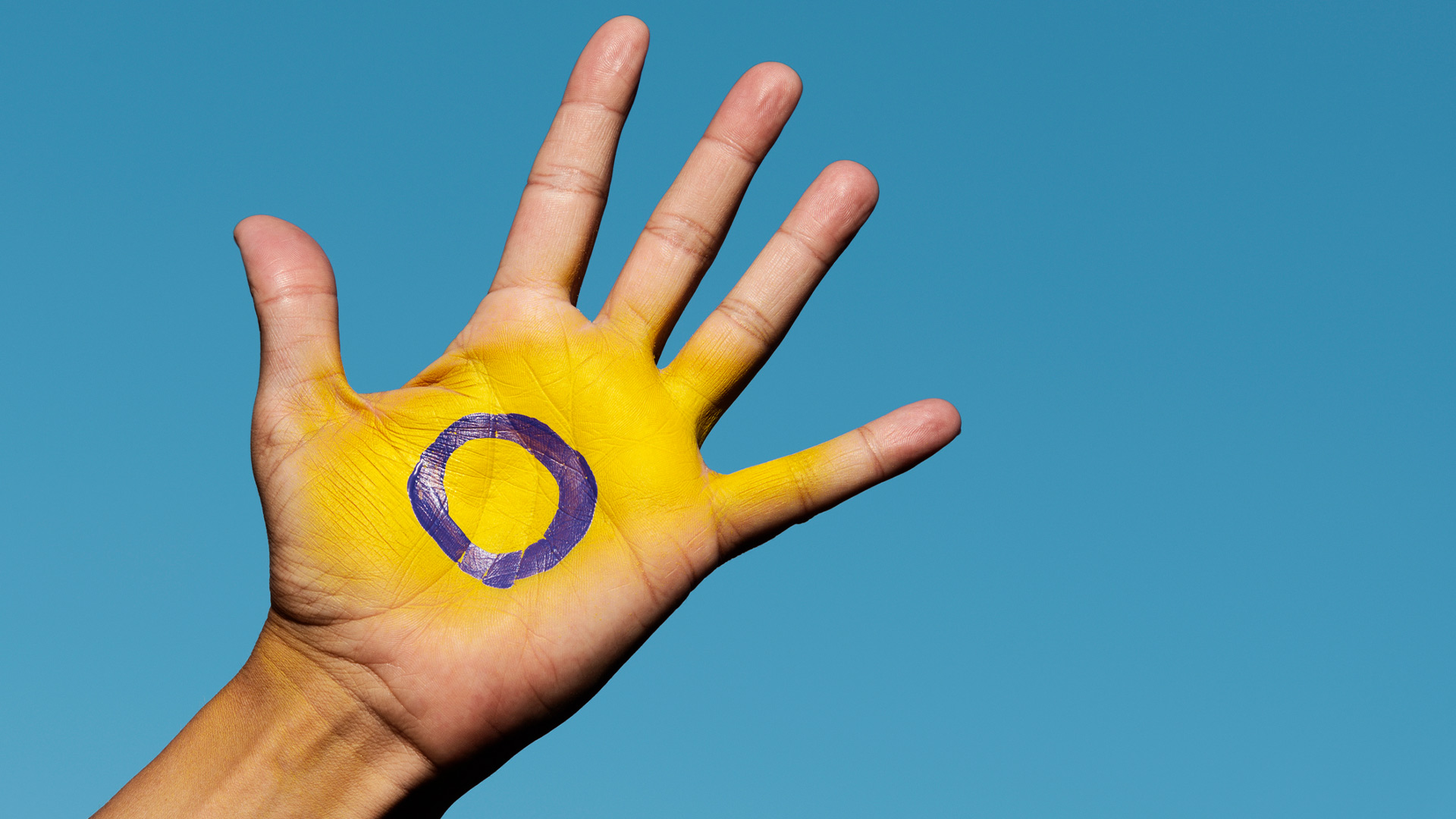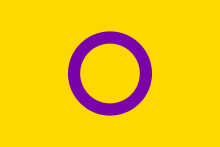
A day to highlight human rights issues faced by intersex people.
Jump to: Intersex Community Hub | Intersex 101 | Resources and Information
October 26 is International #IntersexAwarenessDay, a day to encourage dialogue and raise awareness about the lived experience of intersex people.
Intersex people in Canada continue to be made invisible societally and face undue harm within medical institutions and Canada’s justice system. This includes Canada’s ongoing practice of non-consensual “sex normalizing surgeries,” which we refer to as genital mutilation.
To combat these undue harms, Egale Canada
- has filed an application at the Ontario Superior Court of Justice to challenge the constitutionality of exemptions in the Criminal Code that permit ‘normalizing’ aesthetic surgeries on intersex infants and children,
- is in the process of creating psychosocial training for medical professionals, and
- has created an Intersex Community Hub.
What is intersex?

The term intersex refers to a person whose chromosomal, hormonal or anatomical sex characteristics fall outside the conventional classifications of male or female.
FEATURED RESOURCE: Intersex Community Hub
The Intersex Community Hub has been created by the intersex community, for the intersex community, as well as parents and caregivers of intersex children.
The Intersex Community Hub is a space for members to connect with one another, to ask questions to one another, to share lived experience, to feel heard, and to feel empowered. The hub includes spaces for intersex folks only, as well as spaces for parents and caregivers only, and spaces where everyone can connect with one another.
Members of the hub are able to sign up for free sessions with a trauma-informed counsellor.
Intersex 101
What is intersex?
The term intersex refers to a person whose chromosomal, hormonal or anatomical sex characteristics fall outside the conventional classifications of male or female.
Is intersex a gender identity?
Not strictly, just like people with a non-intersex body, people with intersex variation can have many different gender identities. Many intersex people consider intersex to be something that a medical professional assigned or diagnosed them with and therefore do not consider it an identity.
How many people are intersex?
Some research suggests 1.7% of the population are intersex, but the exact number is often contested for several reasons because
a) there is a vast range of intersex traits,
b) these traits are not always apparent to medical professionals or the individuals themselves,
c) there is a lack of data available in terms of how doctors diagnose and surgically intervene because of bureaucratic claims to protect privacy.
What are the differences between intersex and trans people?
Intersex variation is a medical diagnosis that indicates someone’s sex characteristics do not conform to medical and societal expectations of what bodies look like.
- Trans people have a gender identity that is not the same as the sex they were assigned at birth.
- Intersex people are subjected to non-consensual and harmful surgeries and drugs.
- Trans people often seek surgical changes and hormone therapy, yet they may have a hard time getting the medical attention they need.
Resources and Information
Intersex Resources and Research
Supporting Your Intersex Child – A PDF Resource